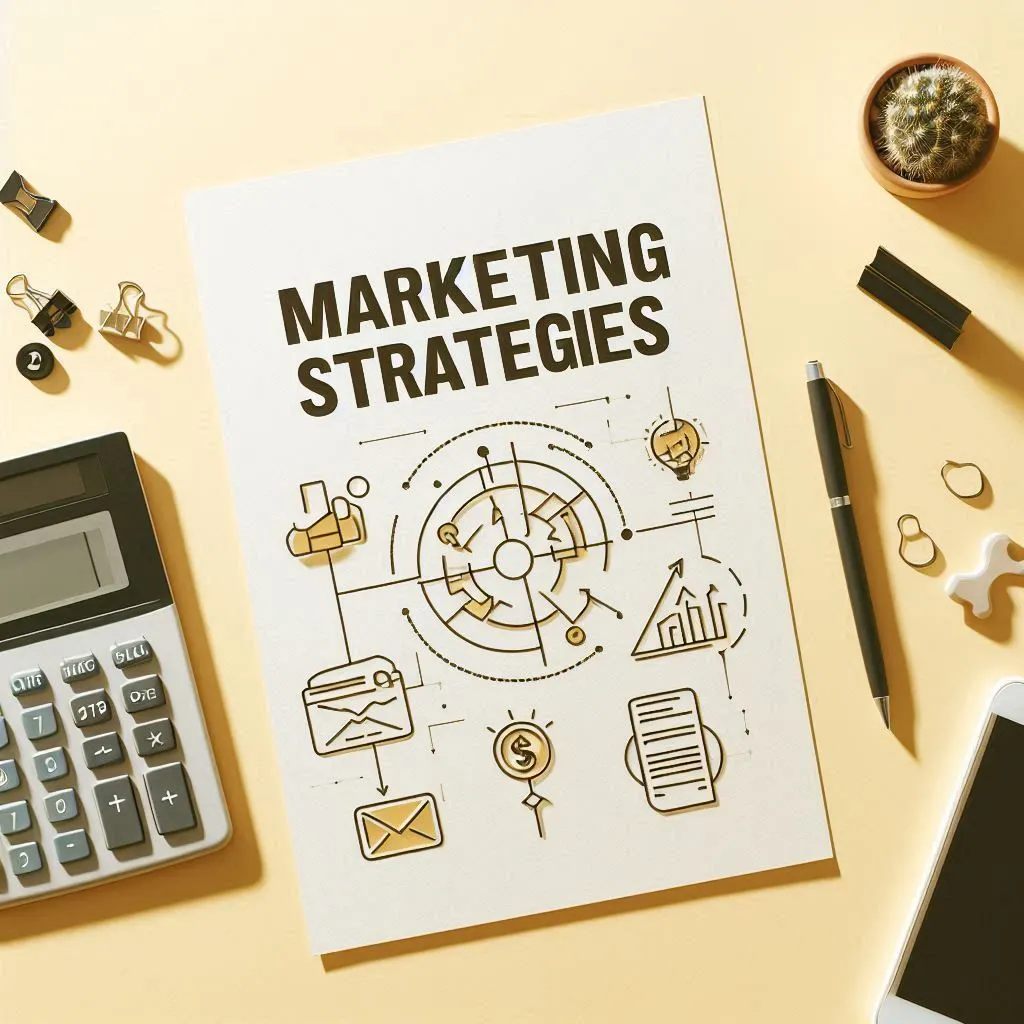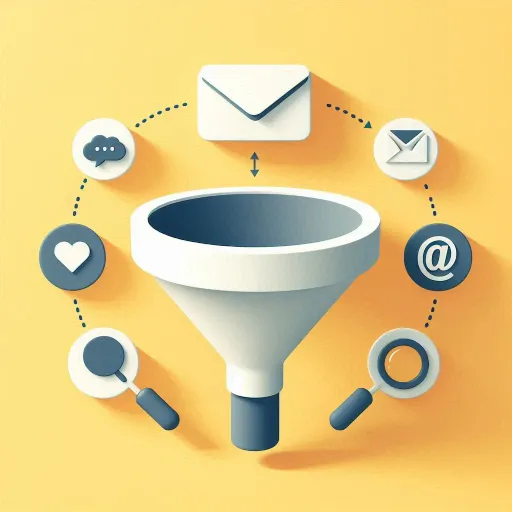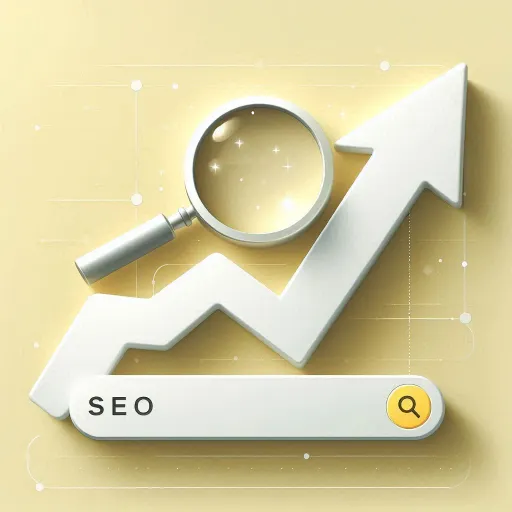
If you are reading this, you already know that creating a marketing strategy for your business is key. As a digital marketing agency, we understand the challenges small business owners face. In this blog, we’ll show you how to unlock the true power of a marketing strategy that works for you. From setting clear goals and understanding your customers to choosing the right channels and crafting a content plan, we’ve got you covered. We’ll also share tips to improve your online presence and keep things on track. Let’s dive in.
Table of contents
- Power of Marketing Strategy
- SMART Goals
- Understand Your Customer
- Selecting Marketing Channels
- Craft a Winning Content Plan
- Boost Your Online Presence with SEO
- Regular Monitoring
- In Conclusion
- Frequently Asked Questions
The Power of Marketing Strategy
Every small business needs a solid marketing strategy to thrive in the competitive market. Without one, it’s like a tree trying to grow without direction. A well-structured small business marketing plan helps you focus your efforts, attract the right customers and grow sustainably.
For small businesses, the right approach can set you apart from competitors. It ensures you’re targeting the right audience and helps you stay competitive, even in a crowded market. In a market filled with large brands, a smart small business marketing strategy helps you stand out, build credibility and stay ahead. It’s not just about advertising but about creating a foundation for growth and long-term success.
S-M-A-R-T Goals
- Start by setting SMART goals which stand for – Specific, Measurable, Achievable, Relevant and Time-bound goals that align with your long-term vision. This ensures your business stays focused and on track.
- Make your objectives specific and measurable. For example, instead of “I want more customers,” set a goal like “Increase sales by 10% in the next three months.”
- Each of your marketing activities should support these objectives for maximum impact. A clear goal helps you plan campaigns that deliver results.
- Regularly reviewing and adjusting your goals to ensure your strategy is working is considered an important part of implementing a strategy.
- One of the best marketing tips is to ensure all efforts are aligned with your objectives. This way, every social media post or campaign directly supports your growth.
Understand Your Customer
Knowing your target audience is crucial for effective small business branding. Start by building detailed customer profiles or personas to understand who you’re trying to reach. This involves researching key factors like demographics, behaviours and preferences.
To create accurate buyer personas, gather data on your current customers and potential market. Look at age, location, interests and buying habits. This helps you identify what resonates with them and how they prefer to engage with your brand. For example, if your target audience values sustainability, highlight eco-friendly aspects of your products in your marketing.
Understanding your audience allows you to tailor your marketing efforts more precisely. Whether you’re designing social media campaigns or crafting promotional content, knowing who you’re speaking to ensures your message is relevant and engaging.
Selecting Marketing Channels
Choosing the right marketing channels is very important for any small business looking to maximise their impact. Not all platforms are created equal, so it’s crucial to pick those that align with your audience and goals.

Start by considering where your target audience spends their time. For instance, if you’re targeting younger consumers, social media platforms like Instagram might be more effective. On the other hand, if you’re aiming at professionals, LinkedIn could be the better choice. Understanding your audience helps you focus your efforts on the channels that will bring the best results.
Digital marketing often provides more affordable and high-impact options compared to traditional methods. Social media is a great example—it offers a wide reach and can be tailored to specific demographics with targeted ads. Email marketing is another powerful tool, allowing you to communicate directly with your audience and nurture relationships. SEO helps improve your website’s visibility and attract organic traffic, making it a valuable long-term investment.
If you’re unsure where to start, a social media marketing agency can offer guidance on the best platforms for your business. They can help you design a strategy that leverages digital channels effectively, ensuring your marketing efforts are both cost-effective and impactful.
Test different channels, track what works best and refine your approach based on performance. This way, you’ll find the perfect mix for your small business marketing strategy and get the most out of your efforts.
Craft a Winning Content Plan
Creating a solid content plan is crucial for small businesses aiming to engage their audience and meet their marketing goals. Here’s how to get started:
Align with Business Goals
Ensure your content supports your business objectives. For example, if your goal is to build brand awareness, focus on creating shareable and informative content. If driving sales is your aim, include clear calls to action in your posts.
Create a Content Calendar
Planning your content ahead of time helps maintain consistency and keeps you organised. A content calendar lets you schedule posts, track important dates and avoid last-minute rushes.
Diversify Content Types
Mixing different formats, like blogs, videos, infographics and social media posts, keeps your audience engaged and interested.
Utilise Meme Marketing
Memes can be a fun and effective way to connect with your audience. They’re highly shareable and can increase engagement when crafted well. You might want to consider working with a meme marketing agency to create memes that resonate with your audience and fit your brand’s tone.
Boost Your Online Presence with SEO
Search engine optimisation (SEO) is essential for small business marketing strategy. It helps your business appear higher in search engine results, making it easier for potential customers to find you online.

Start by focusing on the basics of SEO for small businesses. This includes optimising your website with relevant keywords that reflect your products or services. These keywords should be placed strategically in your content, titles and meta descriptions. A well-optimised website not only improves your search rankings but also provides a better user experience, which helps keep visitors on your site longer.
Local SEO is especially important for small businesses. It ensures that people in your area can find you easily when searching for local products or services. One key step is optimising your Google My Business profile by keeping your contact information, location and business hours updated. Including local keywords, such as your city or neighbourhood, in your content will also help you attract nearby customers.
If SEO feels overwhelming, working with an SEO company could be a good option. They have the expertise to fine-tune your website and help you rank higher in search results, driving more traffic and increasing visibility for your small business.
By implementing SEO and local SEO strategies, you’ll increase your chances of being found by the right audience, both online and in your local community.
Regular Monitoring
Creating a marketing strategy is just the beginning. To ensure your efforts are paying off, it’s important to continuously monitor and measure your performance. This way, you can make informed decisions and adjust your approach when necessary.
Start by setting up clear Key Performance Indicators (KPIs) to track. These could include website traffic, lead generation, conversion rates, or customer engagement. Use analytics tools like Google Analytics to monitor how your audience is interacting with your content, which campaigns are driving the most traffic and where you might be losing potential customers.
It’s also essential to regularly review your marketing data. Look at what’s working and what isn’t. Are your social media efforts generating enough engagement? Is your website attracting the right visitors? Adjust your strategy based on these insights to ensure that your efforts are aligned with your business goals.
If you’re a small business in Mumbai and find yourself too busy to manage all these tasks, consider partnering with a digital marketing agency in Mumbai. They can handle the tracking, measuring and adjusting for you, ensuring that your marketing strategy stays on the right track.
Remember, the best marketing strategies are flexible. Continuously refine and improve your approach based on performance data and you’ll see better results over time.
In Conclusion
If you’re looking to grow your business and reach more customers, creating a solid marketing strategy is the way to go. It’s essential for small businesses and the rewards are well worth the effort.
Need help crafting a strategy that works for your business? Contact us at hello@florafountain.com and let’s build a digital marketing plan that boosts your brand’s visibility and success!



